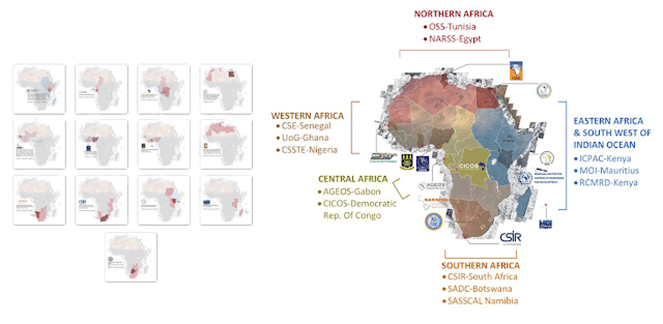Gepubliceerd op 18 augustus 2022
In recent years, the availability of a considerable volume of open and free Earth Observation (EO) data and information, spearheaded by the Copernicus component of the EU Space programme, has played a significant role in the widespread socio-economic development of multiple countries. It is clear that the potential of Copernicus data and information is not limited to Europe but can indeed be exploited in other geographical areas where such information can strongly support economic and social development activities. By leveraging space assets for monitoring and implementing national-to-continental scale sustainable development policies, Africa has been increasing its activity in the EO area, in particular thanks to the cooperation between the European Commission and the African Union Commission.
When the European Commission proposed an African-European partnership to support the digital transformation of the continent, EO was identified as a necessary digital technology providing information for evidence-based policy and decision-making. Indeed, the development of Copernicus and the full, free and open access to the data and information it delivers guarantees access to a wealth of insights, which amounts to approximately 1.2 petabytes of EO per year over the African continent. Geospatial information from Sentinel-1 and -2 facilitate better decision-making throughout Africa. This information can be leveraged in order to achieve sustainable development goals with respect to services for water, natural resources, marine and coastal areas, address the global needs to better manage the environment, and ensure better preparation for and management of disasters.

The 13 GMES & Africa consortia and their geographical extension